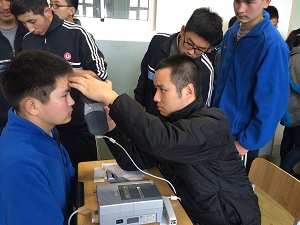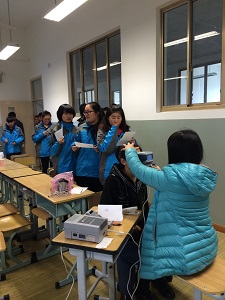Join a powerful, unprecedented alliance for better eye health for all.
Join IAPB-
Choose an alternate language here
The SiB Shanghai project had tremendous progression during 2014, especially in the area of free glasses distribution and parental education. Due to the fact the glasses distribution followed after screening and our primary focus was on screening and patient identification, glasses distribution was very slow at the early phase.
In order to came up with an effective mitigation plan, Orbis project manager initiated several meetings with partner and supporting institutions in early 2014, in which a detailed plan aimed at gradually relocating human resources from other activities into glasses distribution came up. We noticed that school screening during the past several quarters were overachieved. We encouraged partners gradually shifting attention to the patients identified from screening.

In addition, to take advantage of the flexibility and efficiency at private hospital and the clinic excellence at public hospital, we customized works for different hospitals within the SiB network. For example, private hospitals were assigned heavier tasks on glasses distribution, whereas the public hospitals, which are generally short of hands, were required to design and conduct in-school screening quality check, follow-up examinations, and survey on glasses take-up and satisfaction rate. Team leaders from branch hospitals were required to meet on a regular basis to share information.

On the other hand, we found parental education on school parental meetings lagged behind other activities. An investigation conducted by Orbis project manager showed it was difficult for hospitals to arrange parental education in school, not only because government has strict regulation on school entry, but also because local schools don’t welcome eye care education on parental meetings, which are only for discussing academic performance of students. It’s also quite costly to arrange education sessions by local doctors.
In order to improve the cost-effectiveness of parental education and enhance its overall impact, we expanded the format of education from in-class teaching to face-to-face counselling at hospitals, workshops in communities, and booklets designed especially for parents. As a result, we reach many more parents in a short time.

SiB IV Shanghai project, ORBIS
[email protected]